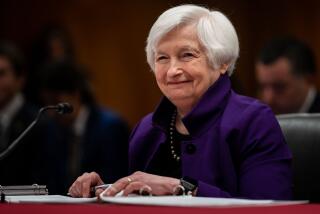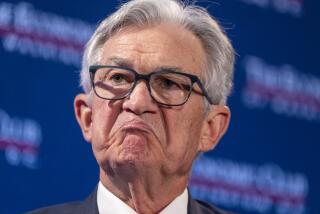Will the Real Crisis Please Stand Up
President Clinton needs a splendid little war. Many pundits have noted that the president’s current travails reflect the diminution of the presidency that attended the end of the Cold War. Without a national security crisis to provide stature, President Clinton finds his personal life open game for an idle press corps and a partisan prosecutor.
Ironically, the current frenzy about the president’s libido has erupted in the midst of the most serious national security crisis of the post-Cold War era: the collapse of the East Asian economies.
As Treasury Secretary Robert Rubin stated in a major address last week, the financial collapse in Asia “is a threat not only to the region, but to economies all over the world, and even ourselves. We cannot ignore these risks. The actions we take now are critical to our economic well-being today and for the future.”
Even if the International Monetary Fund bailout works in Asia, the collapse will have dramatic effects here. Our exports--30% of which go to Asia--will drop. We will be flooded with low-price goods from the Asian tigers. Informed estimates predict that our trade deficit could soar to about $300 billion this year, with 1 million American workers losing their jobs as a result. Manufacturing workers, particularly in steel and autos, will take the biggest hits.
The best informed are the most alarmed. Barton Biggs, chairman of Morgan Stanley Asset Management, warns: “The U.S. economy inevitably will begin to be hollowed out . . . Worldwide competitive devaluation, trade wars and deflationary tendencies could result in a synchronized global slowdown, recession and simultaneous bear markets in Western stock markets. A vicious circle could develop.”
Moreover, the IMF bailouts have not yet stemmed the crisis. The first agreements proved inadequate in South Korea, Thailand, Indonesia and the Philippines. The wave of bankruptcies and layoffs in the region has yet to come. And Japanese, European and U.S. investors may be far more exposed than originally thought.
This national security and economic crisis demands resolute response. The leaders of the U.S., Europe and Japan must coordinate efforts to stimulate global growth. Central banks have to be pushed to lower interest rates. Exposed bankers and investors must be pressured to roll over and extend their loans and pay some of the price of their own folly. The American people must be informed and reassured that concrete steps are being taken to protect U.S. industry and jobs, and to forestall similar crises in the future. As billionaire financier George Soros notes, now is the time to forge fundamental reform of global capital markets. Clearly, presidential leadership is needed.
But the president, of course, is distracted. Rubin’s address went unheard in the din. On Friday, Secretary of State Madeleine Albright’s press conference was consumed more by the scandal facing the president than the challenge facing the country.
Rubin is seeking $18 billion from Congress for the IMF, to “replenish” it for the future. Republicans ranging from protectionist Buchananites to free-trade Reaganites have already announced their opposition.
Progressive Democrats hold the balance of the votes. They sensibly oppose the IMF’s prescription of bailing out speculators and enforcing austerity on working people and want the administration to commit to concrete steps to limit speculation, foster growth and regulate capital flows. Rep. Barney Frank says he can’t understand why the IMF can force the Koreans to dismantle labor protections, but can’t require that the Indonesians guarantee even basic worker rights as a condition of assistance. Presidential leadership is needed to forge a majority coalition for reform.
Given the scope of the Asian financial crisis, the current fixation on sex, lies and audiotapes is a bit surreal. It is as if in the midst of the Cuban missile crisis, a Republican prosecutor had run a sting operation to expose John Kennedy’s extramarital sex life and the resulting expose pushed the Russians off the front page.
There is a real danger here. Distracted by the Clinton soap opera, people tacitly assume that the Asian crisis is over. When its effects are felt, the shock and surprise may contribute to panic and overreaction. That could make the crisis much worse. Maybe then we’ll learn that the economic perils of the new global casino economy can pose as clear and present a danger to our nation’s security as the military threats of the Cold War.
More to Read
Sign up for Essential California
The most important California stories and recommendations in your inbox every morning.
You may occasionally receive promotional content from the Los Angeles Times.










